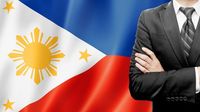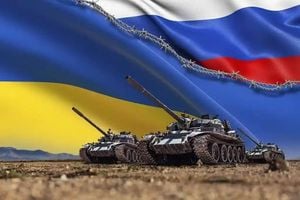Imelda Marcos, the sister of Philippine President Ferdinand Marcos Jr. and current member of the Philippine Senate, is calling for urgent scrutiny and review following the arrest of former President Rodrigo Duterte by the International Criminal Court (ICC). This situation has sparked intense debate within the country as legal and political repercussions continue to emerge.
On March 11, 2025, Rodrigo Duterte, who served as President from 2016 to 2022, was arrested based on an ICC warrant linked to his controversial policies during the so-called "war on drugs" which led to thousands of deaths. Upon arrest, he was transferred to the ICC’s facility located in The Hague, Netherlands, where he is currently being detained as he awaits trial.
Imelda Marcos, who chairs the Senate Committee on Foreign Relations, emphasized the need to examine the legality of the ICC process. “It is imperative to investigate whether the process was lawful and to assure his legal rights are protected, especially with the involvement of Interpol and the ICC,” she stated, as reported by Xinhua News Agency. Her comments reflect concerns not only about Duterte’s legal standing but also about the potential international overreach concerning Philippine sovereignty.
Marcos underscored the importance of clarity on these issues, indicating a desire for the Senate to address substantial concerns about the nation's legal jurisdiction over its leaders and how Philippine law interacts with international legal frameworks. “Our sovereignty and legal processes must take precedence,” she added, strengthening her position on the necessity to uphold national laws and processes.
The arrest has been met with divided reactions across Philippine society. Human rights activists have welcomed the ICC's involvement, seeing it as a step toward holding Duterte accountable for alleged extrajudicial killings and abuses associated with his administration's drug-related operations. Conversely, supporters of Duterte have labeled the proceedings as politically motivated attempts to undermine Philippine sovereignty and the rights of former leaders.
Significantly, protests featured prominently over the weekend, where anti-Duterte groups rallied, calling for the arrest of key figures like Ronald dela Rosa and Oscar Albayalde—former police officials implicated in the heavy-handed crackdown on drugs. There is palpable tension as these demands resonate within the broader discussions on law enforcement brutality and accountability.
Imelda’s statements reflect her proactive approach toward ensuring the integrity of Philippine law and governance. She intends to invite various officials from key government departments, including the Department of Justice and the National Police, to provide testimony and clarify their roles during Duterte's administration, especially concerning international interventions.
This move may indicate shifting dynamics within Philippine politics, stressing the need for coherence between international standards and domestic legal frameworks. Observers remain watchful of how these developments will influence the stability of Marcos Jr.'s presidency and the public's perception of the judicial processes at play.
Overall, the combination of the ICC's international authority and the Philippines' legal framework creates complex interactions warranting careful navigation. Particularly as the nation grapples with the legacy of Duterte’s presidency, this episode could set significant precedents for future governance and accountability measures within the country.
Consequently, the historical ramifications of Duterte's arrest and the overarching influence of international legal bodies like the ICC might evoke spirited discussions within Philippine society. With Imelda Marcos at the forefront advocating for due process and legal scrutiny, the political atmosphere appears charged with uncertainty—and perhaps marks the beginning of heightened legal accountability for leaders past and present.





